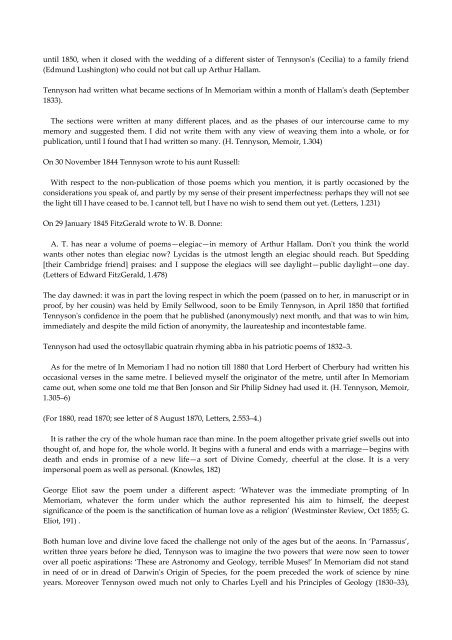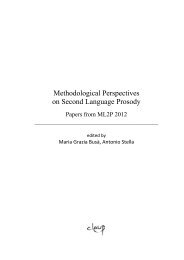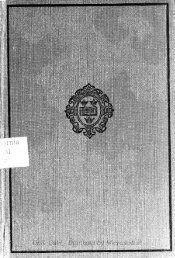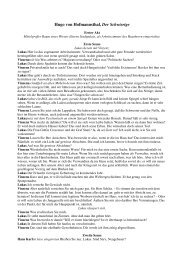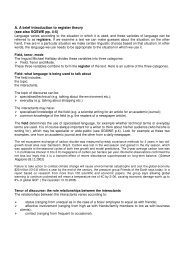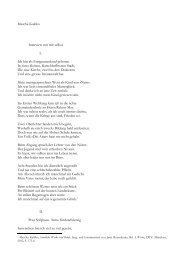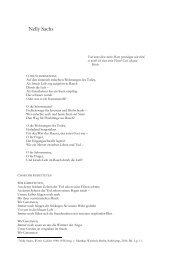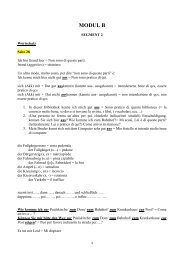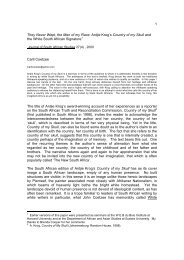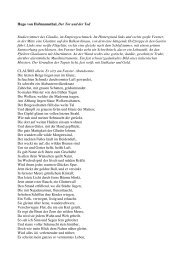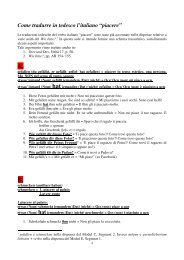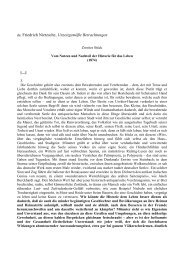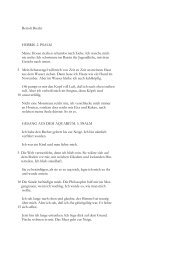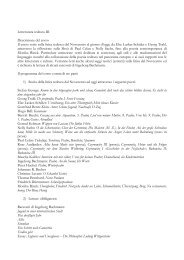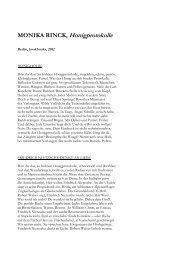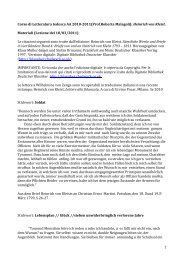The lives of the poets from The Dictionary of National Biography ...
The lives of the poets from The Dictionary of National Biography ...
The lives of the poets from The Dictionary of National Biography ...
You also want an ePaper? Increase the reach of your titles
YUMPU automatically turns print PDFs into web optimized ePapers that Google loves.
until 1850, when it closed with <strong>the</strong> wedding <strong>of</strong> a different sister <strong>of</strong> Tennysonʹs (Cecilia) to a family friend<br />
(Edmund Lushington) who could not but call up Arthur Hallam.<br />
Tennyson had written what became sections <strong>of</strong> In Memoriam within a month <strong>of</strong> Hallamʹs death (September<br />
1833).<br />
<strong>The</strong> sections were written at many different places, and as <strong>the</strong> phases <strong>of</strong> our intercourse came to my<br />
memory and suggested <strong>the</strong>m. I did not write <strong>the</strong>m with any view <strong>of</strong> weaving <strong>the</strong>m into a whole, or for<br />
publication, until I found that I had written so many. (H. Tennyson, Memoir, 1.304)<br />
On 30 November 1844 Tennyson wrote to his aunt Russell:<br />
With respect to <strong>the</strong> non‐publication <strong>of</strong> those poems which you mention, it is partly occasioned by <strong>the</strong><br />
considerations you speak <strong>of</strong>, and partly by my sense <strong>of</strong> <strong>the</strong>ir present imperfectness: perhaps <strong>the</strong>y will not see<br />
<strong>the</strong> light till I have ceased to be. I cannot tell, but I have no wish to send <strong>the</strong>m out yet. (Letters, 1.231)<br />
On 29 January 1845 FitzGerald wrote to W. B. Donne:<br />
A. T. has near a volume <strong>of</strong> poems—elegiac—in memory <strong>of</strong> Arthur Hallam. Donʹt you think <strong>the</strong> world<br />
wants o<strong>the</strong>r notes than elegiac now? Lycidas is <strong>the</strong> utmost length an elegiac should reach. But Spedding<br />
[<strong>the</strong>ir Cambridge friend] praises: and I suppose <strong>the</strong> elegiacs will see daylight—public daylight—one day.<br />
(Letters <strong>of</strong> Edward FitzGerald, 1.478)<br />
<strong>The</strong> day dawned: it was in part <strong>the</strong> loving respect in which <strong>the</strong> poem (passed on to her, in manuscript or in<br />
pro<strong>of</strong>, by her cousin) was held by Emily Sellwood, soon to be Emily Tennyson, in April 1850 that fortified<br />
Tennysonʹs confidence in <strong>the</strong> poem that he published (anonymously) next month, and that was to win him,<br />
immediately and despite <strong>the</strong> mild fiction <strong>of</strong> anonymity, <strong>the</strong> laureateship and incontestable fame.<br />
Tennyson had used <strong>the</strong> octosyllabic quatrain rhyming abba in his patriotic poems <strong>of</strong> 1832–3.<br />
As for <strong>the</strong> metre <strong>of</strong> In Memoriam I had no notion till 1880 that Lord Herbert <strong>of</strong> Cherbury had written his<br />
occasional verses in <strong>the</strong> same metre. I believed myself <strong>the</strong> originator <strong>of</strong> <strong>the</strong> metre, until after In Memoriam<br />
came out, when some one told me that Ben Jonson and Sir Philip Sidney had used it. (H. Tennyson, Memoir,<br />
1.305–6)<br />
(For 1880, read 1870; see letter <strong>of</strong> 8 August 1870, Letters, 2.553–4.)<br />
It is ra<strong>the</strong>r <strong>the</strong> cry <strong>of</strong> <strong>the</strong> whole human race than mine. In <strong>the</strong> poem altoge<strong>the</strong>r private grief swells out into<br />
thought <strong>of</strong>, and hope for, <strong>the</strong> whole world. It begins with a funeral and ends with a marriage—begins with<br />
death and ends in promise <strong>of</strong> a new life—a sort <strong>of</strong> Divine Comedy, cheerful at <strong>the</strong> close. It is a very<br />
impersonal poem as well as personal. (Knowles, 182)<br />
George Eliot saw <strong>the</strong> poem under a different aspect: ‘Whatever was <strong>the</strong> immediate prompting <strong>of</strong> In<br />
Memoriam, whatever <strong>the</strong> form under which <strong>the</strong> author represented his aim to himself, <strong>the</strong> deepest<br />
significance <strong>of</strong> <strong>the</strong> poem is <strong>the</strong> sanctification <strong>of</strong> human love as a religion’ (Westminster Review, Oct 1855; G.<br />
Eliot, 191) .<br />
Both human love and divine love faced <strong>the</strong> challenge not only <strong>of</strong> <strong>the</strong> ages but <strong>of</strong> <strong>the</strong> aeons. In ‘Parnassus’,<br />
written three years before he died, Tennyson was to imagine <strong>the</strong> two powers that were now seen to tower<br />
over all poetic aspirations: ‘<strong>The</strong>se are Astronomy and Geology, terrible Muses!’ In Memoriam did not stand<br />
in need <strong>of</strong> or in dread <strong>of</strong> Darwinʹs Origin <strong>of</strong> Species, for <strong>the</strong> poem preceded <strong>the</strong> work <strong>of</strong> science by nine<br />
years. Moreover Tennyson owed much not only to Charles Lyell and his Principles <strong>of</strong> Geology (1830–33),


